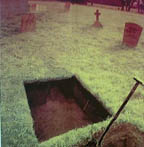 When I was involved with …and Ladies of the Club a few eons ago I received an offer for the audio rights for the book. This was to be a condensed version, since the book was more than 1000 pages long. I asked for a sample script from the audio producer, and it turned out to run some 75 pages. You had to laugh. Gone were the inner lives of the two principal characters. Gone was the story of the fifty years of the development of the U.S. from the Civil War to the Depression. Gone were the discussions of ideas. Left was the barest shell of the events of the novel. Anyone buying the tape would have been defrauded, believing they were about to hear anything that resembled this masterpiece. We declined the offer.
When I was involved with …and Ladies of the Club a few eons ago I received an offer for the audio rights for the book. This was to be a condensed version, since the book was more than 1000 pages long. I asked for a sample script from the audio producer, and it turned out to run some 75 pages. You had to laugh. Gone were the inner lives of the two principal characters. Gone was the story of the fifty years of the development of the U.S. from the Civil War to the Depression. Gone were the discussions of ideas. Left was the barest shell of the events of the novel. Anyone buying the tape would have been defrauded, believing they were about to hear anything that resembled this masterpiece. We declined the offer.
Screenplays are similar. No matter how long the original novel, a screenplay is, with few exceptions, not going to be longer than 125 pages. A screenplay is double-spaced, descriptive paragraphs honed down to nothing, and lots of space taken up by the character’s names before their speeches. Bob. (line break) “You know what I’m thinking?” (line break) Jim. (line break) “No. What?” (line break) Bob stirs the campfire. (line break) Bob. (line break) “There’s something out there in the dark.” (line break) In a screenplay, you’ve just eaten up almost half a page.
Which brings me to the umpteenth zillion obituary for the book that has ocurred ever since the new media arrived. That would be movies. Then radio. Then television. Now it’s the Kindle and iPhone. Books are perpetually finished. Who would ever read a book again once they’ve seen that Charlie Chaplin? I can’t imagine.
This morning it was Motoko Rich on the front page of The New York Times, shovel in hand, digging in the deep rich soil. The new book killer-app appears to be the vook, which is basically a book with some video content. Your reading stops. You click on the media, and you watch some video in which something occurs that isn’t even going to be in the print part of your experience. You go back to a little reading, eager for the setup for the next video. Is this incredible, or what?
The best part of an obituary like this is the low hanging fruit of killer quotes that, it appears, a great many publishing experts are willing to give. We are gathered, once again, around the grave of The Book As We Know It. Let’s see whose shovel can hold the most compost. A “reading expert” at Tufts, Maryanne Wolf, goes first. “Can you any longer read Henry James or George Eliot? Do you have the patience?” Thwump! Dust to dust.
Next up is the novelist Jude Deveraux, who imagines going beyond video, all the way to smell. “I’d like to use all the senses.” If you liked Smellovision under your theater seat in 1960, you’ll love Stinkoread. Thwump!
The book is almost gone from sight, but another publisher comes to the edge of the grave, shovel quivering unsteadily with its heavy load. Judith Curr has seen the future, and Everything You Have Ever Known Will Be Different. “You can’t just be linear anymore with your text,” she warns. Authors, everywhere: take note. It’s Naked Lunch all over again. Talk about your non-linear text!
Thwump! The book is finally buried.
But I’m not so sure. This thing about the end of the book reminds me a little of the theory of Peak Oil, which makes a powerful case that some time soon, maybe even this year, the discovery of new oil fields will decline, production will inexorably decrease, and by 2050 oil will finally be more expensive than Evian and Everything Will Be Different. Are we at Peak Book? Are we at the apex of that bell curve that started with Gutenberg 500 years ago, so that books might completely vanish in another 500 years? Maybe. But I’ll bet dollars to doughnuts that the last perfume of Stinkoread will be a distant whiff long before then.
Tags? How about: death, death of books, death of books prematurely declared, death of publishing, death of thinking, kooks, schnooks and vooks
Leave a Reply
You must be logged in to post a comment.